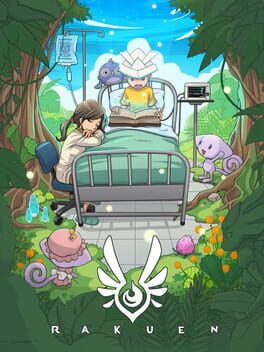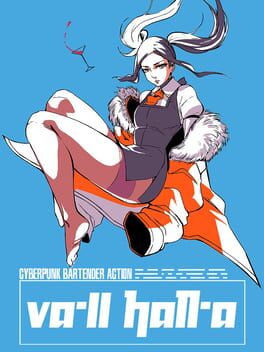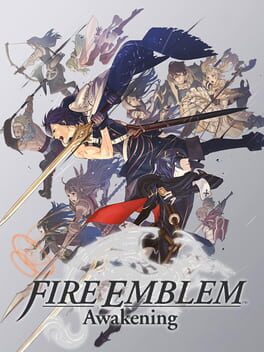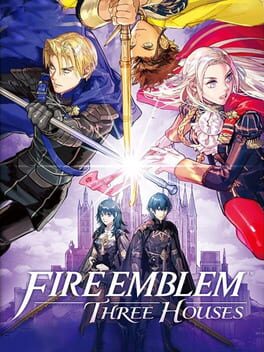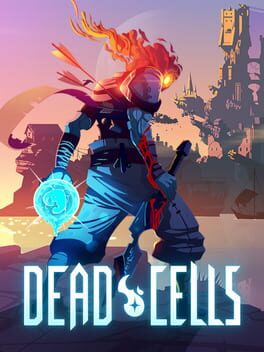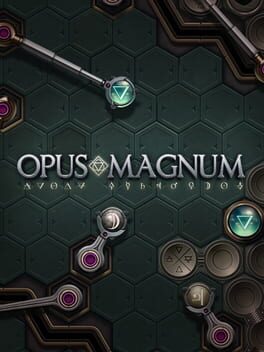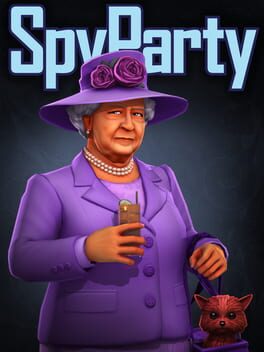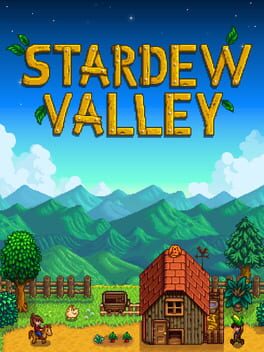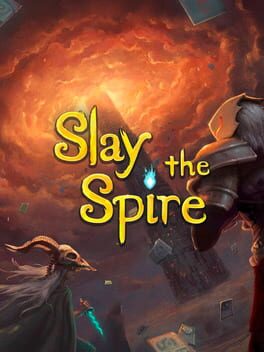CrimpyTomato591
2017
A game that, despite it's flaws, packs a serious emotional punch and deserves to be played.
Completing this game was difficult for me, since the first half was a bit disappointing. The first 2 "substories" (out of 5) were interesting, but a tad overdramatic and didn't elicit the emotions I was hoping for. The gameplay felt a little grindy, with time being wasted on walking back and forth between locations and doing very little interaction with the world. I ended up stopping for about 2 months halfway through the third character story, since it just didn't feel like it was worth my time.
It took me a while to find the motivation to continue past that point, but I'm really glad I did - the endings of the last 3 character stories were heartbreakingly emotional, managing to make me cry during reveals I'd already put together beforehand.
Rakuen is far from perfect, but there is definitely a lot to admire in the end.
Completing this game was difficult for me, since the first half was a bit disappointing. The first 2 "substories" (out of 5) were interesting, but a tad overdramatic and didn't elicit the emotions I was hoping for. The gameplay felt a little grindy, with time being wasted on walking back and forth between locations and doing very little interaction with the world. I ended up stopping for about 2 months halfway through the third character story, since it just didn't feel like it was worth my time.
It took me a while to find the motivation to continue past that point, but I'm really glad I did - the endings of the last 3 character stories were heartbreakingly emotional, managing to make me cry during reveals I'd already put together beforehand.
Rakuen is far from perfect, but there is definitely a lot to admire in the end.
2019
Honestly, if I'd written this review immediately after finishing the game, it would have been an instant 5 stars, no question.
Now that a few months have passed, though? I'm disappointed to say that it didn't leave as much of a long-term impact as I'd hoped.
The game is an extremely clear-cut Good vs. Evil narrative, to its detriment in many instances. Many of the villains are comically evil, and the overarching conspiracy feels almost... cheap, looking back.
And while the third semester added by Royal was definitely a mixed bag, at least it had some substance to its moral discussion. The most emotional moment for me was actually in seeing the contrast between the two endings in the third semester, seeing how those endings compared to one another. The contrast between them made for a much more satisfying conclusion to each character's arc, having them choose to fight for a world with their trauma and accept that part of themselves, even when faced with the option to have it erased. Fighting for an objectively worse reality and acknowledging the trauma and darkness in their lives, rather than forgetting about it amidst the 'found-family' of the Phantom Thieves. Other than that, though, the story wasn't really anything that special or groundbreaking, other than the novel idea of using supernatural powers to punish evil in positions of power.
What I will say in this game's favor is that the style is unmatched, to the point where I would almost recommend it just for that. As someone interested in game design, the interfaces, visuals, and soundtrack were genuinely fascinating. It's a AAA game that's crafted with an indie game level of passion, and that's something I haven't really seen before.
I had an absolute blast with Persona 5 when I played it, but it consumed an immense amount of my free time to complete. Unless someone was already really interested in trying it I would struggle to recommend the game, as 100+ hours is just too much now that I look back and see how little of it actually stuck with me.
Do I regret playing it? Not at all, no. It was actually a really unique experience. But would I recommend it casually? Definitely not. Only try it if you have a lot of time at your fingertips and are already very invested in the premise.
Now that a few months have passed, though? I'm disappointed to say that it didn't leave as much of a long-term impact as I'd hoped.
The game is an extremely clear-cut Good vs. Evil narrative, to its detriment in many instances. Many of the villains are comically evil, and the overarching conspiracy feels almost... cheap, looking back.
And while the third semester added by Royal was definitely a mixed bag, at least it had some substance to its moral discussion. The most emotional moment for me was actually in seeing the contrast between the two endings in the third semester, seeing how those endings compared to one another. The contrast between them made for a much more satisfying conclusion to each character's arc, having them choose to fight for a world with their trauma and accept that part of themselves, even when faced with the option to have it erased. Fighting for an objectively worse reality and acknowledging the trauma and darkness in their lives, rather than forgetting about it amidst the 'found-family' of the Phantom Thieves. Other than that, though, the story wasn't really anything that special or groundbreaking, other than the novel idea of using supernatural powers to punish evil in positions of power.
What I will say in this game's favor is that the style is unmatched, to the point where I would almost recommend it just for that. As someone interested in game design, the interfaces, visuals, and soundtrack were genuinely fascinating. It's a AAA game that's crafted with an indie game level of passion, and that's something I haven't really seen before.
I had an absolute blast with Persona 5 when I played it, but it consumed an immense amount of my free time to complete. Unless someone was already really interested in trying it I would struggle to recommend the game, as 100+ hours is just too much now that I look back and see how little of it actually stuck with me.
Do I regret playing it? Not at all, no. It was actually a really unique experience. But would I recommend it casually? Definitely not. Only try it if you have a lot of time at your fingertips and are already very invested in the premise.
2015
Rocket League is an interesting game for me, in that it has exposed one of the issues I now have with competitive online games.
In terms of the gameplay itself, Rocket League is phenomenal and utterly unique. You can't really find the same type of experience anywhere else, and that novelty is very attractive. To make matters even better, it has remained almost completely unchanged in the many years I've been playing, making it really easy to jump back after a period of inactivity compared to say, a fighting game that adds new characters to its roster every few months.
That being said, I've learned a valuable lesson in playing the game; Nothing changes between matches other than a minute improvement in my skills, which will never be applicable anywhere other than this specific game. It is a time sink. The moment you decide to stop playing, all of that time you've invested is essentially invalidated, with nothing of value sticking with you after all is said and done. Not only that, but I will never be at the level I want to be, not unless I were to drop everything else in my life.
Compared to the numerous finite singleplayer titles I've experienced, it's simply too hard to justify spending time playing Rocket League anymore.
It's a fun game. Extremely fun. But by its very nature of infinite replayability, that fun is utterly mindless, and as such I've decided to spend my time in other ways.
In terms of the gameplay itself, Rocket League is phenomenal and utterly unique. You can't really find the same type of experience anywhere else, and that novelty is very attractive. To make matters even better, it has remained almost completely unchanged in the many years I've been playing, making it really easy to jump back after a period of inactivity compared to say, a fighting game that adds new characters to its roster every few months.
That being said, I've learned a valuable lesson in playing the game; Nothing changes between matches other than a minute improvement in my skills, which will never be applicable anywhere other than this specific game. It is a time sink. The moment you decide to stop playing, all of that time you've invested is essentially invalidated, with nothing of value sticking with you after all is said and done. Not only that, but I will never be at the level I want to be, not unless I were to drop everything else in my life.
Compared to the numerous finite singleplayer titles I've experienced, it's simply too hard to justify spending time playing Rocket League anymore.
It's a fun game. Extremely fun. But by its very nature of infinite replayability, that fun is utterly mindless, and as such I've decided to spend my time in other ways.
I tried Awakening after finishing Three Houses, and I'll admit that I enjoyed the latter a bit more with its quality-of-life mechanics and more complex narrative.
That being said, I still had an amazing time with Awakening and can definitely see why it is so venerated within the Fire Emblem series. It's strategy gameplay is extremely tight and easy to understand, and its soundtrack is really something special.
Honestly, I think there's a lot of beauty in its simplicity - the story is a very cut-and-dry Good vs. Evil, yet there are plenty of standout moments within that do a great job of presenting themes of trust, friendship, and loyalty.
In the end, Awakening knows what it is trying to be and achieves that goal almost flawlessly, resulting in an experience well worth any Fire Emblem fan's time.
That being said, I still had an amazing time with Awakening and can definitely see why it is so venerated within the Fire Emblem series. It's strategy gameplay is extremely tight and easy to understand, and its soundtrack is really something special.
Honestly, I think there's a lot of beauty in its simplicity - the story is a very cut-and-dry Good vs. Evil, yet there are plenty of standout moments within that do a great job of presenting themes of trust, friendship, and loyalty.
In the end, Awakening knows what it is trying to be and achieves that goal almost flawlessly, resulting in an experience well worth any Fire Emblem fan's time.
FE:3H is a game that is truly special to me, showcasing everything that an RPG title can be. It's genuinely so impressive how attached I got to every single member of the incredibly large cast of characters, and the story they follow is simultaneously heartbreaking and inspiring. That being said, there is one fundamental hiccup that makes it difficult to recommend the game wholeheartedly.
While you can definitely enjoy the game by playing a single route, what truly elevates Three Houses is experiencing the events through the different perspectives, something that requires you to replay the ENTIRE game MULTIPLE TIMES.
On one hand, the story and characters only become better on each subsequent playthrough as you gain a deeper understanding of both them and their roles in the greater conflict.
On the other, though, so much of the content is almost identical for each path that it can be a bit of a slog to go through the entire first half of the game three times.
Three Houses' structure is both the reason the story left such an impact on me and why I struggle to recommend anybody else take the time to go through it all. Asking someone to play a 30 hour RPG is already pretty significant, but asking them to play that same game two additional times, with a large amount of the content being identical for each? That's a bit much, at least for me.
In the end, I recommend FE:3H conditionally; If you're willing to invest the time to play through multiple perspectives and can stomach some of the repetition, the game is more than worth your time. I personally look back with nothing but fond memories despite the frustrations I had throughout.
While you can definitely enjoy the game by playing a single route, what truly elevates Three Houses is experiencing the events through the different perspectives, something that requires you to replay the ENTIRE game MULTIPLE TIMES.
On one hand, the story and characters only become better on each subsequent playthrough as you gain a deeper understanding of both them and their roles in the greater conflict.
On the other, though, so much of the content is almost identical for each path that it can be a bit of a slog to go through the entire first half of the game three times.
Three Houses' structure is both the reason the story left such an impact on me and why I struggle to recommend anybody else take the time to go through it all. Asking someone to play a 30 hour RPG is already pretty significant, but asking them to play that same game two additional times, with a large amount of the content being identical for each? That's a bit much, at least for me.
In the end, I recommend FE:3H conditionally; If you're willing to invest the time to play through multiple perspectives and can stomach some of the repetition, the game is more than worth your time. I personally look back with nothing but fond memories despite the frustrations I had throughout.
2017
Dead Cells is an impressive title in many respects, definitely worth trying for its addictive gameplay loop. The blending of roguelike and metroidvania mechanics is incredibly unique, and well worth trying for the novelty alone.
That being said, I lost interest after completing the base game, as the difficulty scaling afterwards (the 'boss cells' that apply constraints on your character) just wasn't my cup of tea.
There's a lot to appreciate here, in any case, especially with the never-ending flow of DLC additions.
That being said, I lost interest after completing the base game, as the difficulty scaling afterwards (the 'boss cells' that apply constraints on your character) just wasn't my cup of tea.
There's a lot to appreciate here, in any case, especially with the never-ending flow of DLC additions.
2017
Zachtronics games are practically in a genre of their own, and as such require an understanding of what they are going in if you're to get any enjoyment out of the experience.
Opus Magnum, especially, is a mental exercise, forcing you to try and develop the optimal system for a given task while being judged on three criteria (space efficiency, speed, and material cost).
If you're someone who loves optimization and can stomach that kind of gameplay this is one of the best in the genre, but I can easily see anybody else disliking it on a fundamental level.
Opus Magnum, especially, is a mental exercise, forcing you to try and develop the optimal system for a given task while being judged on three criteria (space efficiency, speed, and material cost).
If you're someone who loves optimization and can stomach that kind of gameplay this is one of the best in the genre, but I can easily see anybody else disliking it on a fundamental level.
2018
SpyParty is a game that is far too expensive for what it is, especially given the fact that it's still 'unfinished.'
That being said, if you're willing to fork over the cash needed to get this for yourself and a friend, there is a lot of fun to be had in the psychological warfare and mind games SpyParty allows. It's definitely best enjoyed with someone you can hop into a call with in small doses, but in the end the choice is yours whether it's worth that initial investment.
That being said, if you're willing to fork over the cash needed to get this for yourself and a friend, there is a lot of fun to be had in the psychological warfare and mind games SpyParty allows. It's definitely best enjoyed with someone you can hop into a call with in small doses, but in the end the choice is yours whether it's worth that initial investment.
2016
2019
By far my favorite title in the "deckbuilding roguelike" genre, with an addictive gameplay loop that makes it really tempting to start a new run whenever you fail.
My only complaints, which are honestly quite minor, are that one of the classes (ironclad) is significantly easier to win with than the others, and some of the cards are very underpowered, to the point that they aren't really viable in any circumstance.
In any case, though, Slay the Spire is definitely worth a try, especially if you can snag it during one of its frequent price drops.
My only complaints, which are honestly quite minor, are that one of the classes (ironclad) is significantly easier to win with than the others, and some of the cards are very underpowered, to the point that they aren't really viable in any circumstance.
In any case, though, Slay the Spire is definitely worth a try, especially if you can snag it during one of its frequent price drops.
2021
Inscryption is by far one of the most surreal and interesting games I've ever taken the time to go through, but in all of the right ways - the gameplay changes enough to stay interesting throughout its ~10 hour runtime, and you never know what's going to come next.
And completely disregarding the fun factor, its presentation is a spectacle in of itself, showcasing some of the most original design I've ever seen.
And completely disregarding the fun factor, its presentation is a spectacle in of itself, showcasing some of the most original design I've ever seen.
